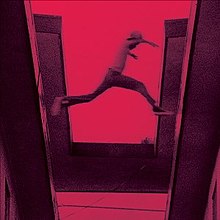The Ecstatic
| The Ecstatic | ||||
|---|---|---|---|---|
 |
||||
| Studio album by Mos Def | ||||
| Released | June 9, 2009 | |||
| Studio | Record Plant and Someothaship Connect in Los Angeles; Downtown Music Studios in New York City; Hovercraft Studios in Virginia Beach | |||
| Genre | Conscious rap, alternative hip hop | |||
| Length | 45:34 | |||
| Label | Downtown | |||
| Producer | Georgia Anne Muldrow, J Dilla, Madlib, Mos Def, Mr. Flash, The Neptunes, Oh No, Preservation | |||
| Mos Def chronology | ||||
|
||||
| Singles from The Ecstatic | ||||
|
||||
| Professional ratings | |
|---|---|
| Review scores | |
| Source | Rating |
| AllMusic | |
| Entertainment Weekly | B+ |
| The Guardian | |
| The Irish Times | |
| MSN Music | A |
| Pitchfork | 8/10 |
| Rolling Stone | |
| Spin | 9/10 |
| The Times | |
| USA Today | |
The Ecstatic is the fourth studio album by American rapper Mos Def. After venturing further away from hip hop with an acting career and two poorly received albums, Mos Def signed with Downtown Records and recorded The Ecstatic primarily at the Record Plant in Los Angeles. He worked with producers such as Preservation, Mr. Flash, Oh No, and Madlib, the latter two of whom reused instrumentals they had produced on Stones Throw Records. Singer Georgia Anne Muldrow, formerly of the record label, was one of the album's few guest vocalists, along with rappers Slick Rick and Talib Kweli. For its front cover, a still from Charles Burnett's 1978 film Killer of Sheep was reproduced in red tint.
The Ecstatic was described by music journalists as a conscious and alternative hip hop record with an eccentric, internationalist quality. Mos Def's raps about global politics, love, spirituality, and social conditions were informed by the zeitgeist of the late 2000s, Black internalionalism, and Pan-Islamic ideas, as he incorporated a number of Islamic references throughout the album. Its loosely structured, lightly reverbed songs used unconventional time signatures and samples taken from a variety of international musical styles, including Afrobeat, soul, Eurodance, jazz, reggae, Latin, and Middle Eastern music. Mos Def titled The Ecstatic after one of his favorite novels—the 2002 Victor LaValle book of the same name—believing its titular phrase evoked his singular creative vision for the album.
...
Wikipedia
